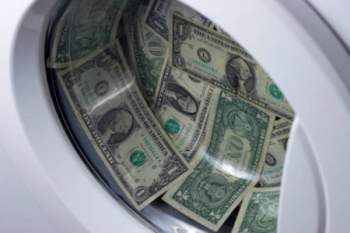
Read These Requirement for a Copyright Deposit Before Submitting Copies

Popular In Copyright
Copyright Law Copyright Infringements What Is Copyright Legal Consequences Of Plagiarism Copyright Free Image Florida Prepaid Postsecondary Education Expense Board V College Savings Bank Famous Cases Of Copyright Law Copyright A Book Library Of Congress Copyright Copyright Laws For Motion Pictures Copyright Infringement Punishment Copyright Symbol
What is a Copyright Deposit?
A copyright deposit refers to the legal requirement of submitting copies of an individual or group's copyrighted works or materials for record keeping purposes. This is generally a process that occurs when a copyrighted work is registered with the United States Copyright Office.
The material or works themselves must be submitted for the purpose of protecting the copyright owner against any potential violation or infringement on the material. A copyright deposit is mandatory for the copyright registration process, but it is not necessary to obtain or possess a legal copyright.
What are the requirements for a copyright deposit?
There are certain requirements that must be met imposed by the United States Copyright Office and the Library of Congress to make an appropriate copyright deposit, as stated under the provisions of copyright law. Copyright deposits can be made for written publications, recorded media, transmission media, as well as works of arts and their various mediums. Certain provisions are taken into consideration regarding the type of work or material being submitted for copyright deposit.
The copyright owner is mandated under copyright law to make a copyright deposit all works and materials within three months of the publication or production of the copyrighted work or material. Certain exceptions apply for certain types of works, but generally speaking, the basic requirements are:
Two complete copies of the best edition available for a written publication
Two complete recordings of the best edition available for a sound recording or recorded media
Any printed or visual material pertaining to the sound recording must also be presented. For example: CD with printed insert containing lyrics, artwork, photographs, etc.
The submitted copies of the written publication or recorded media are deposited in the United States Copyright Office and are made available for the use of the Library of Congress at any time for review in cases of legal disputes regarding infringement or violation of copyright law.
In certain cases, the copyright office may decide to make certain exceptions to the stated requirements depending on extenuating circumstances. For example, the Copyright Office may not require a copyright deposit for certain copyrighted works because of practicality purposes and because such a deposit would prove to be an imposition on the copyright owner. Such is the case with works of art including sculptural pieces, paintings, drawings, etc., where there is only one copy in existence.
For those works of art that are meant to be reproduced for financial and distributing purposes, they are required to make a copyright deposit if more than five copies of the work exist and have been published. The exemption of deposit is also extended to limited edition or numbered editions of a copyrighted production, where a monetary or financial value would make deposit of two copies of the best edition an unfair request to the copyright owner.
In the instance that a work is originally published outside of the United States or part of a larger, collective work, a complete copy or recording of how it was originally published or best edition of the collection must be submitted as a requirement for copyright deposit.
The United States Copyright Office may also impose a written demand to a copyright owner that has failed to properly complete the copyright deposit process after a copyrighted work or material has been published. If the owner fails to comply with the request, the individual or group may be subject to:
Fine for up to $250 for each published work or material
Fine consisting of the total retail price of the copies or recorded media paid to the Library of Congress
If no retail value has been established, the Library of Congress may implement a reasonable fine with an approximate value
If the copyright owner fails to comply after reasonable requests for Copyright Deposit, a fine of $2,500 may be implemented, in addition to the separate fine of up to $250 for each published work or material.
Transmissions of certain media that have been made to the United States public may also be subject to mandatory copyright deposit. All transmissions that have been published are mandated by law to be properly deposited, and those not yet published may be requested to do so at the discretion of the Library of Congress.
The Librarian of Congress may consult with various organizations and related parties to establish a method of obtaining copies of such transmissions to be kept on record by the Library of Congress. Some of the provisions for deposit of transmission media are:
The Librarian of Congress has the discretion to make a copy or recording directly from the transmission of the program to the public;
If the Library of Congress makes the decision to acquire the transmission for deposit purposes, it may issue a written demand for the copyright deposit of a copy or recording of a particular transmission program. The copyright owner may choose to:
Make a gift of the actual transmission copy
Loan a copy for reproduction purposes
Sell the transmission copy at a price that is limited to the cost of reproducing a copy or recording
All transmissions are subject to the three month period from date of original transmission or production to comply if the program has been deemed necessary for copyright deposit. Failure to comply can lead to a fine consisting of the cost of reproducing a copy or recording of the transmission program.
The mandatory compliance to the provision of copyright deposit within three months of the original date of publication or transmission may be extended due to certain circumstances, as long as the intention to comply has been expressed by the copyright owner, and those circumstances are in lieu of time constraints for reproducing a copy or recording or making the actual copyright deposit.
NEXT: Your Guide to Copyright Registration




















